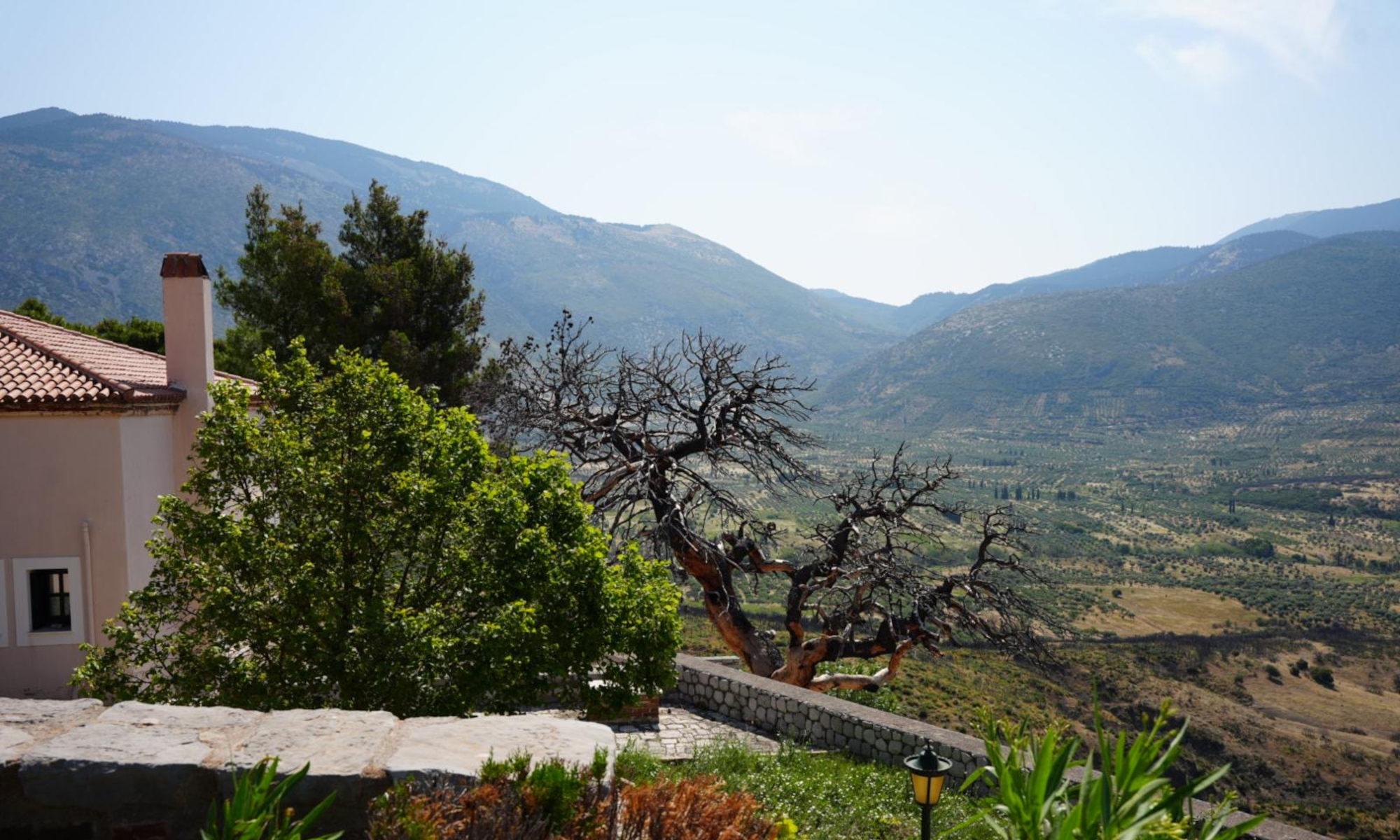By Valerio Castellini
 EX!T. Revolution from Within. Photographed by Julia Tulke. 2018, Exarcheia, Athens, Greece.
EX!T. Revolution from Within. Photographed by Julia Tulke. 2018, Exarcheia, Athens, Greece.
In the heat of midday, I am a loner ambling in the streets of Athens. A stray cat crosses the street from time to time, and a gust of wind while I’m turning a corner takes me back to reality from my pensive state. But as I look around to fathom where my aimless rumbling has brought me, I start noticing how every wall is covered in something—layers of graffiti, torn posters, political slogans half scratched out and rewritten. I must have arrived in Exarcheia.
This neighborhood, long known as the beating heart of Greece’s radical left, feels both alive and hemmed in by the rest of Athens. To understand its present, I spoke with two people shaped by it in very different ways.
One was José Ernesto, a 35-year-old Cuban artist on sabbatical. I found him sitting at a café table, sipping a beer. Every few minutes he paused to greet someone walking by. “Exarcheia is a town inside the city,” he told me. “People don’t like tourists. Everybody knows each other. It’s a tight community.” But it’s not, he said, the political stronghold it once was. “Antifa has become a fashion,” he added. As someone who grew up in a Communist country, he finds local leftist ideals too romanticized: “With communism, you are going to live worse.”
He worries that the new metro station under construction will turn Exarcheia into another Plaka—the clean, curated, and stripped of edge area at the foot of the Acropolis that has long lost its authenticity to serve the superficial needs of the herds of tourists flowing in daily. He sees graffiti as a vital language here, but one that doesn’t speak to outsiders. “It resonates inside the community,” he said, “but doesn’t really reach externals in a significant way.”
And beyond Exarcheia, his concern grows deeper: “Power corrupts people,” he said. “The government is detached. It doesn’t work to actually change things.” Prime Minister Mitsotakis and his centre-right government have not regained trust after the scandals that have hit them, particularly the 2022 ‘Predatorgate’ and the 2023 Tempi train crash.
To José, people are leaving because staying and fighting feels futile.
That same disillusionment surfaced again when I met EX!T, a street artist who prefers to only be known through his stage name. We met in a quiet café, where he stirred his freddo espresso slowly before speaking. He started tagging at the age of 13, however the EX!T project only started later, in 2013. Just as the refugee crisis was about to begin, eventually peaking in 2015 with the arrival to Greece of over 800,000 migrants and refugees. A deep burden on an already-strained Greece, that faced many difficulties in managing such influx.
The name EX!T itself reflects a tension between flight and belonging. “I feel like a migrant,” he said. “I never felt I belonged anywhere. My art is about that feeling.”
For him, graffiti isn’t protest in the traditional sense. It’s more personal. “Sometimes, I don’t even know what the message is until months later. It’s my therapy.” He described a moment that stayed with him: while painting some wood on fire on a side street, a migrant man stopped to watch. They exchanged no words—only gestures. The man pointed to his chest, miming a stabbing motion, his eyes full of tears. The image went beyond language. “That moment hit me deeply,” EX!T said. “No words were needed.”
Like José, he fears Exarcheia will lose what makes it matter. “Right now, there’s a balance here,” he said. “But if it becomes mainstream, that will break.”
EX!T also shared a broader frustration with Greece’s political direction: while society may be more open and empathetic than before, “the government feels like the best we could possibly have—because there is no alternative,” he told me. Elections come and go, but little seems to change. Corruption scandals make headlines, but accountability rarely follows. People are tired, but not angry in the streets, just worn down. That gap, he said, is where apathy grows.
As I walked back toward the noise of central Athens, the slogans faded from the walls. But their message stayed with me. Greece is full of voices. The real question is whether anyone is still willing to hear them.
